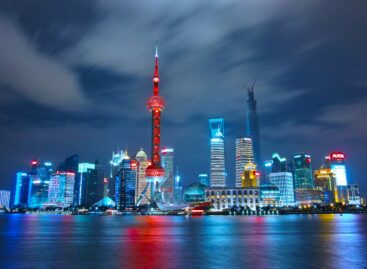The world’s biggest companies joined forces (part 3)
Our introduction of the 70-page Future Value Chain 2020 report has come to an end. In the last part we focus on what companies do to realise the goals and on the conclusions they drew. The Consumer Goods Forum (CGF) unites 400 leading retailers, manufacturers and service providers based on the ideology of ‘better lives through better business’. For the successful implementation of their programme, the initiative set four strategic goals (environmental protection, optimised value chain, reaching consumers, health) that stand on five strategic pillars (trends, sustainability, health and safety, cooperation, sharing knowledge). In November 2010 the Forum approved a resolution to achieve net zero deforestation by 2020. They also set forth a timeline by 2015 for the complete phase out of HFCs used in refrigerators. With more effective communication in mind a standard system for measuring pollutant emission and energy consumption was proposed. A standard terminology is also necessary for educating consumers. GPP (Global Packaging Project) deals with sustainable packaging and participating companies harmonise their actions in this field. Currently individual manufacturers organise product transportation to warehouses and retailers separately but the future is about high-level cooperation: synchronised distributional specialists will collect products from manufacturers and transport them to collective distribution centres. To work out the details, Capgemini organised an advisory pilot project with the participation of 10 manufacturers and 9 logistics service providers. In order to offer better services and help consumers in decision making, the sector ought to use the opportunities provided by technological development and engage in real dialogue with consumers. GS1’s data base will soon be available to consumers as well (B2C) and this way end users will have access to reliable product data. The Forum also launched the Global Food Safety Initiative, the aim of which is to standardise the already existing food safety systems. Companies have different options for putting theory into practice. They can either use the Future Value Chain 2020 report as a framework for forming their strategies or they can compare their priorities with what is written in the report and try to integrate the root trends into their objectives. What the report emphasises several times is that most goals can only be reached in cooperation with other actors in the sector. Let us a see a couple of examples: Unilever and ASDA-Walmart started a programme called Family Kitchen, which tries to call the attention of British households to their role in protecting the environment. The METRO Group developed a programme for preserving the flora and fauna of the Mekong Delta, in cooperation with local farmers, processing companies, WWF, GlobalGAP and the government. PepsiCo China made the deserts of Inner Mongolia fertile by providing the necessary infrastructure (roads, electricity); drifting sand was stabilised with plants and now wheat, potato and corn are grown. United Biscuits and Nestlé teamed up in sharing lorry trips, cutting costs and reducing environmental burden at the same time. Several companies joined forces in voluntarily refusing to advertise for children under the age of 12. The Nestlé Healthy Kids Global Programme, which involves national health and education authorities and nutrition experts, aims at teaching schoolchildren about the importance of health and well-being. Last but not least the authors of the Future Value Chain 2020 ask the heads of companies in the report to review their strategies and actions plans according to the contents of the report. The authors ask them questions such as: Are you ready to stop manufacturing products that are basically unsustainable? Do you have a scenario for managing ecological disasters? Does the currently used supply chain guarantee you a competitive advantage? Would you share cargo or warehouse with competitors? Do you know how to differentiae consumers from customers? What means do you have for serving the needs of the developing world? If you want your company to be successful in 2020 too, be prepared to cooperate with partners in the industry and participate in the global and local programmes supported by the Forum. Integrate the root trends identified by the Future Value Chain 2020 report into your company’s strategy. For more information visit www.futurevaluechain.com and www.theconsumergoodsforum.com





